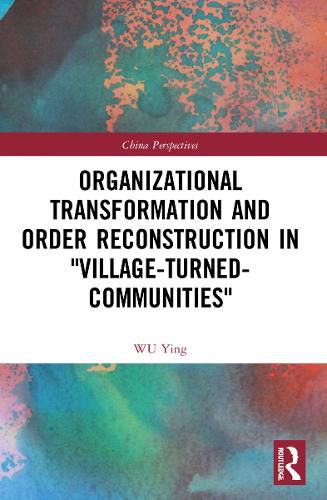Readings Newsletter
Become a Readings Member to make your shopping experience even easier.
Sign in or sign up for free!
You’re not far away from qualifying for FREE standard shipping within Australia
You’ve qualified for FREE standard shipping within Australia
The cart is loading…






Since the beginning of the twenty-first century, a state-led urbanization has evolved into a "city management" in China: A large number of villages were demolished; cultivated land was centralized; and peasants went to live in apartments, which led to the widespread emergence of "village-turned-communities".
This title explores the evolving and complex relationship between the urbanization of land and people - two core components of China's urbanization strategy. What role does the government play in resolving conflicts around these two aspects of urbanization? What role can it play in adjudicating them? To answer these questions, the author examines rural migrants' experience in integrating and being integrated into the cities. Through a three-year investigation in Beijing, Shandong, Hubei and Yunnan, the author shows how government policies can either engender or mitigate conflicts, as well as identifies integrated governance as an effective approach to urbanization of both land and people.
This title is awarded the top ten Chinese sociology books in 2019. Students and scholars of sociology, politics and public administration will benefit from this book.
$9.00 standard shipping within Australia
FREE standard shipping within Australia for orders over $100.00
Express & International shipping calculated at checkout
Since the beginning of the twenty-first century, a state-led urbanization has evolved into a "city management" in China: A large number of villages were demolished; cultivated land was centralized; and peasants went to live in apartments, which led to the widespread emergence of "village-turned-communities".
This title explores the evolving and complex relationship between the urbanization of land and people - two core components of China's urbanization strategy. What role does the government play in resolving conflicts around these two aspects of urbanization? What role can it play in adjudicating them? To answer these questions, the author examines rural migrants' experience in integrating and being integrated into the cities. Through a three-year investigation in Beijing, Shandong, Hubei and Yunnan, the author shows how government policies can either engender or mitigate conflicts, as well as identifies integrated governance as an effective approach to urbanization of both land and people.
This title is awarded the top ten Chinese sociology books in 2019. Students and scholars of sociology, politics and public administration will benefit from this book.